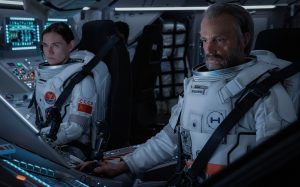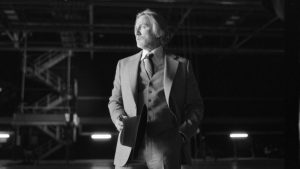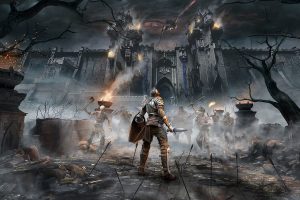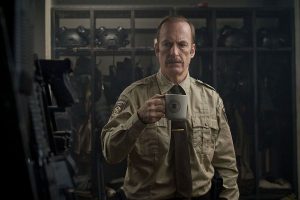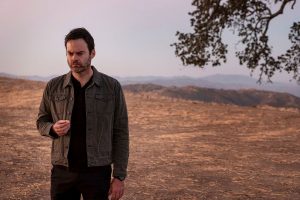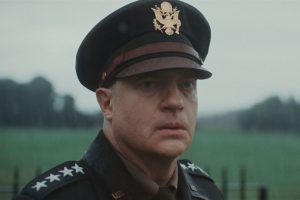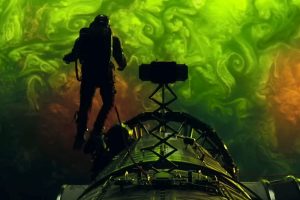
In 1998 I went to my lone professional tennis match at Wimbledon and then proceeded to fall asleep.
Before you get on me too hard, I was barely older than a toddler. Jet lag from the day before was rough, the queues to get tickets were long, and rain delays can stretch out a match beyond what should be humanly expected of a child.
I’m still disappointed that I missed out on strawberries and cream, but there’s something else. Michael Chang was playing in the draw and my oblivious mind had no idea…
I’m not saying that if I had been more aware that day, I could have started on the path of a tennis prodigy. I don’t suffer those kind of delusions.
However, with hindsight and the help of the new ESPN 30 for 30 documentary, written and directed by Jay Caspian Kang, I have a newfound appreciation for what Michael Chang represents and the feats he accomplished. He was a pioneer among Asian Americans in professional sports, and he did it at such a young age.
When my life crossed paths with Michael Chang, he was already well-established. His rise began much earlier.
Origin Story
With almost any professional athlete, there seems to be a shared throughline of parents who sacrificed for their children. Michael Chang‘s parents emigrated from Taiwan. His dad’s work had a complimentary tennis club and so the whole family got involved — their two kids included.
Eventually, the Chang family moved from Minnesota to San Diego. It’s suggested the change in scenery was ostensibly because the weather was more conducive to playing tennis outdoors.
Tennis, like golf, feels like one of those tough sports where you can easily get priced out if you’re not from a country club-monied background. It’s difficult to bridge economic disparities. One of Michael’s early youth tennis coaches, Angel Lopez, knew this firsthand as a Mexican-American who always looked different than everybody else and never had the nicest gear.
He called Michael a personal hero since he was able to make it as a first-generation American thanks to his superior work ethic and skill. Jeff Austin, Chang’s agent early on, similarly compared Chang’s talent to his sister Tracy Austin who famously became a teenage phenom.
source: ESPN
To put it into context, Chang came of age while Pete Sampras, Andre Agassi, and Jim Courier were all coming up through the ranks. However, in an era that already boasted Americans like John McEnroe and Jimmy Connors, Chang idolized Bjorn Borg because Borg’s opponents could never tel what he was thinking.
The young tennis player’s temperament was much the same: Intense but composed under pressure. He had an innate ability to dissect and exploit his opponent’s weaknesses. Remarkably, Michael Chang turned pro at the age of 15!
A “Minority-American” in 1989
One of the notable sequences in American Son highlights a type-written letter Arthur Ashe sent to Chang. Ashe was famously a collegiate star at UCLA and one of the most prominent Black athletes in professional tennis to that point (along with Althea Gibson).
He was a perceptive man who knew racism, in both its subtle and not-so-subtle forms, was baked into everything, especially a tennis tradition going back to Victorian England.
Although they were of different ethnicities, Ashe saw himself in Michael, the only Asian-American in the virtually all-white cast of characters in American tennis.
While Ashe was skeptical of the boy’s youth, he also shared pointed advice. The road to success for both of them at the time was to focus on meritocracy — the accepted pathway of a model minority. That would cause people to sit up and take note. Michael Chang exceeded expectations and Ashe was cheering for him as a fellow “Minority-American.”
source: ESPN
One of the creative decisions of the documentary is the juxtaposition of the Tiananmen Square massacre and the ascension of 17-year-old Chang at the 1989 French Open. The events were happening simultaneously.
In his fairy tale story, Chang crushes his young peer, Pete Sampras, only to come up against the juggernaut superstar Ivan Lendl. The commentator gets it right, “This is Rocky Balboa, Roy Hobbs, and Kirk Gibson all rolled up into one.”
It becomes a full-fledged drama of punch and counter-punch with unorthodox tactics all while Michael’s mother watches stoically from the sidelines for a mammoth 5-set battle pitting David vs. Goliath.
The structure feels like standard nonfiction fare, but there is one notable moment where we cut back to an earlier replay. Jeff Austin recalls how his sister Terry began lobbing the ball past Martina Navratilova forcing her to adjust. It’s edited together with Chang conserving his energy in the midst of severe cramps only to pounce on one of Lendl’s unforced errors.
This story would have landed in the dustbin of history if not for the fact that Chang somehow gritted out the win. And after winning the final, he raised up what amounted to a quiet prayer. He said, “God bless everybody, especially those in China.”
It wasn’t a resounding gong. It wasn’t going to ameliorate the protests and suppression of students in Tiananmen Square, or radically shake up the world order, but it was a modest offering of hope to those in need.
Conclusion: American Son
Chang’s brand of finesse and killer instinct, matched with his quickness made him a fierce competitor. Over time the likes of Sampras and Agassi would outpace him in wins and cultural influence. Perhaps he was a victim of his own early success or being a “Minority-American” in the broader society.
But he was still a champion and the youngest man ever to win a men’s singles title. Later, he was also inducted into the Tennis Hall of Fame. Records come and go, but his other accolades can never be taken away from him.
Whether we were aware or not (I’m embarrassed to say I wasn’t), Michael Chang was a trailblazer for many Asian Americans in sports.
In American Son, he’s likened to having Michael Jordan or pop star status in China, only to come back to the States where everything’s low-key again. It says more about us than it does about him.
If I knew what I do now on that drizzly day at Wimbledon, I hope I would have struggled to stay awake, if not to enjoy some strawberries and cream, then to celebrate one of the preeminent tennis players of our day.
Michael Chang doesn’t need any qualifiers. He is a great athlete and a great American.
American Son premiered on July 29th, 2024 and is available on ESPN+
Does content like this matter to you?
Become a Member and support film journalism. Unlock access to all of Film Inquiry`s great articles. Join a community of like-minded readers who are passionate about cinema – get access to our private members Network, give back to independent filmmakers, and more.
